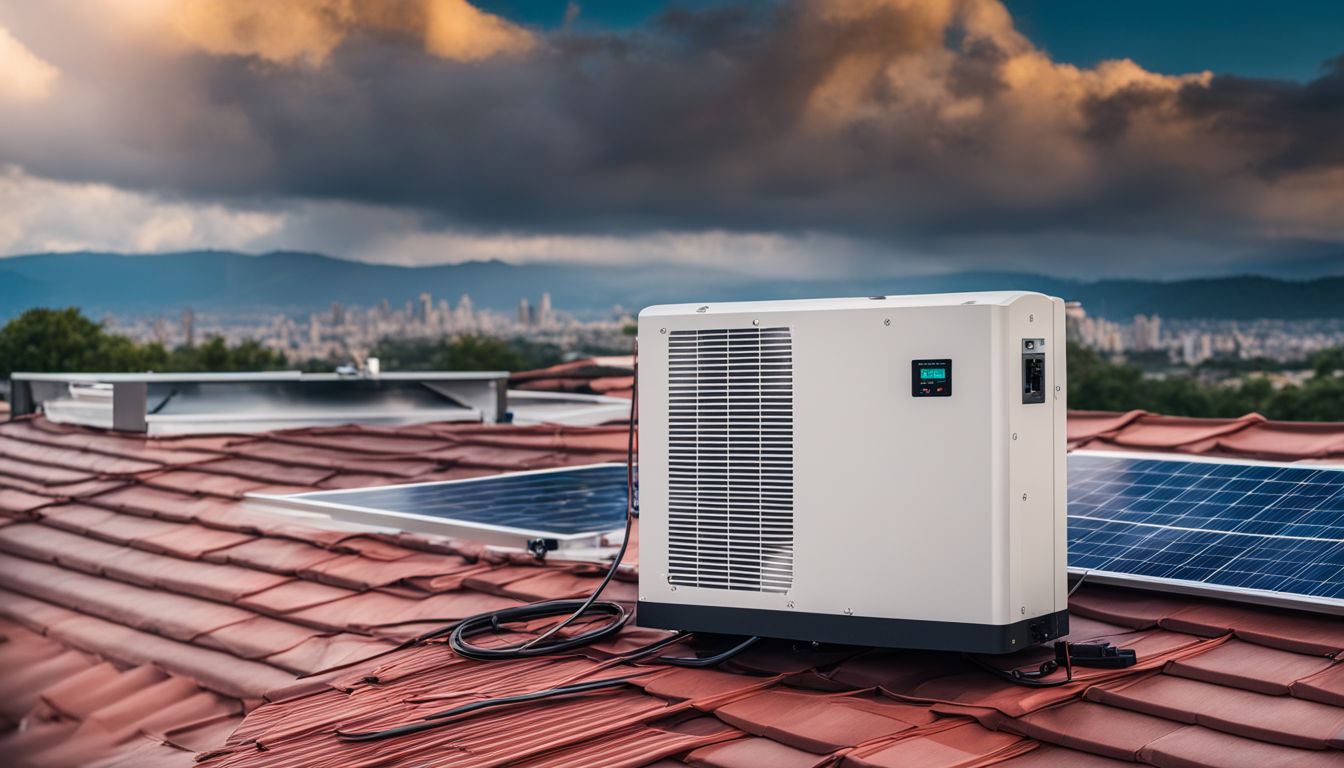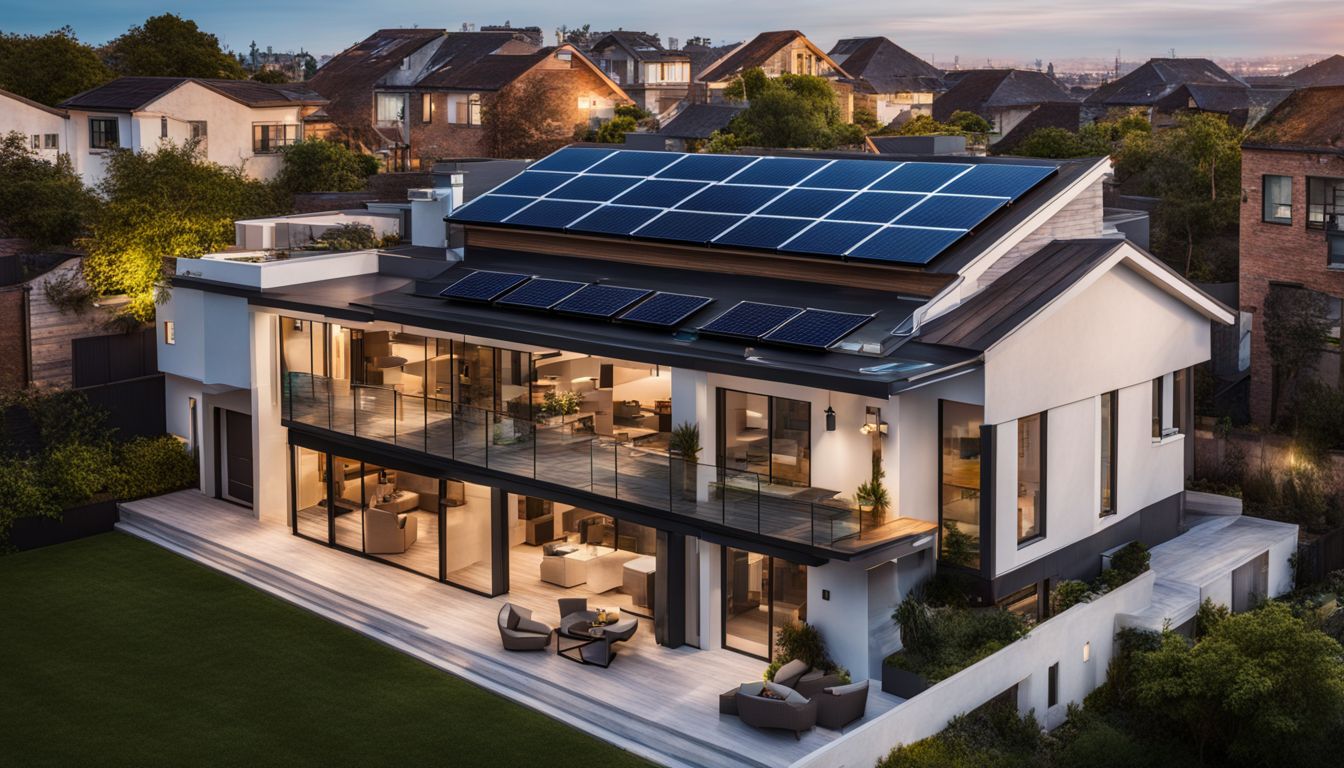Is a 5kw inverter enough to run a house?

Deciding if a 5 kW inverter is enough to power your home can be puzzling. Interestingly, a typical 5kW solar inverter might cover the energy needs of a moderately used, medium-sized household.
This article will navigate you through what such an inverter can manage, from lights to fridges, and help clarify whether this choice fits your domestic electricity demands. Read on—let's shed some light!
Key Takeaways
- A 5kW solar inverter can produce up to 20 kWh of electricity in a day, enough for medium-sized homes with moderate energy usage.
- The total power required by household appliances must not exceed the capacity of the 5 kW solar inverter; careful use may be needed when running multiple high-energy devices simultaneously.
- Solar panel efficiency might decrease slightly over time, but they are designed to last for about 25 to 30 years, providing reliable long-term energy production for your system.
- Living in areas with more sunshine improves a 5kW system's performance; less sunny locations could mean relying on grid electricity at times.
- Adding a battery with enough storage capacity and compatible features enhances a 5kW system by providing consistent power supply during non-sunny hours.
Understanding a 5kW Solar Inverter

A 5kW solar inverter is a smart device that changes direct current (DC) from your solar panels into alternating current (AC), the type of power that runs things in your home. Think of it as the heart of your solar power system.
It lets you take sunshine and turn it into energy for lights, TVs, fridges—almost everything! This kind of inverter can handle quite a bit of electricity. On sunny days, it could make up to 20 units of electricity—that's enough to keep lots of stuff going at once.
Having this size inverter means you might not need to use electricity from outside your house, which saves money on bills. It works well if you're living somewhere with plenty of good sunlight, because then it makes more energy for you to use around the house or store away for later.
If there are clouds or rain, though, the amount it can make drops down a little. But don't worry; even on darker days, there's usually still some power coming through!
https://www.youtube.com/watch?v=iIrKfFhFK00
What Can a 5kW Solar Inverter Run?

A 5kW solar inverter has the capacity to run multiple appliances, but this will depend on the number of appliances and the size of your house. Factors such as power production, geographical location, and power requirements also play a crucial role in determining what your solar system can effectively run.
https://www.youtube.com/watch?v=LLfU47Zs3Qc
The number of appliances
Understanding the capabilities of a 5kW solar inverter involves appreciating how it accommodates various household appliances within its power output constraints. The inverter efficiently manages the operation of several devices, provided the total consumption does not exceed its capacity.
Here's a succinct representation of how many household appliances can typically run on a 5 kW solar inverter:
| Appliance | Power Usage (Average) | Operational on a 5kW system? |
|---|---|---|
| Washing Machine | 1-2 kW | Yes |
| Air Conditioner (1.5-ton) | 1.5 kW | Yes, limited to one or two units |
| Refrigerator | 0.1-0.2 kW | Yes |
| Water Heater | 4-5 kW | Yes, but may need to be used selectively |
| Oven | 2-4 kW | Yes, with careful management |
| TV | 0.1-0.3 kW | Yes |
| Lights | 0.06 kW (for 10 LED bulbs) | Yes |
| Fans | 0.075 kW (per fan) | Yes |
| Computer | 0.1-0.4 kW | Yes |
| Small Electronic Devices | Variable | Yes |
This table highlights that a 5kW inverter can comfortably power essential household appliances. However, simultaneous use of high-power-consumption devices, like air conditioners and water heaters, requires strategic energy management. Homes typically operate smoothly under a 5kW system, with an eye on overall energy usage. Keep in mind, geographical location and daily sun exposure significantly influence power production, affecting how effectively these appliances are run.
The size of the house
A 5kW solar inverter suits many homes, but size matters. For a large house with several rooms and things like air conditioners working, this kind of system is just right. It can make about 20 kW each day, which is plenty for an average family's needs.
Think about your own home – if it has three or four bedrooms, you'll likely have enough power from a 5kW setup to keep all your stuff like fridges, TVs, and lights running smoothly.
Now, smaller houses get even more from the same system because they use less energy. With good ways to save power – like LED lights or energy-efficient appliances – even a little less than 5kW could be fine for daily life off the grid.
Solar panels on such homes don't just cut down on electricity bills; they make sure there's always light and warmth without relying too much on outside sources of power.
Factors That Determine What Your Solar System Can Run
Considerations such as the power production of your system, the power requirement of your appliances, and your geographical location all play a crucial role in determining what your solar system can effectively run.
Understanding these factors will help you make informed decisions about the capacity and capability of your 5kW solar inverter.
https://www.youtube.com/watch?v=IRQVysnbNAE
Power production of the system
A 5kW solar system can create up to 20kWh of electricity every day. This may sound like a lot, but it's vital to know that it doesn't make 5kW non-stop. The sun moves through the sky, and clouds might block it sometimes.
So, throughout the day, the power your panels produce will go up and down.
Your solar panels work best when they get full sunlight. When there is more light, they make more energy! But not all places get the same amount of sunshine. If you live where it is often sunny, your system might give you more power than in a cloudy city.
That's why thinking about where you live helps figure out if 5kW is enough for your home.
Power requirement of your appliances
Different home appliances need different amounts of power to work. For example, a fridge may use less electricity than an air conditioner. To find out if a 5kW inverter is enough for you, check the wattage of each appliance you want to run.
Add these up and see if they fit within the 5kW limit.
Imagine your freezer needs 700 watts and your microwave uses 1200 watts when it's on. If both are running at the same time, that's already close to 2000 watts. Now throw in some lights and maybe a TV or charging a smartphone; it all adds up quickly! To stay under the limit, think about which things really need electricity at the same time.
Smart choices help make sure your solar system fits your needs well.
Your geographical location
Your house location plays a big role in how well your 5kW solar system works. If you live where the sun shines a lot, like in Australia or parts of the US, you'll get more electricity from your solar panels.
This means during sunny days, your panels might make enough power for all your needs.
But if you're somewhere with less sunshine or long winters, like the UK or parts of Canada, it's different. Here, your 5kW system may not make as much electricity. You might need to use energy from the grid sometimes.
Remember that a 5kW system can generate around 4,000 to 5,000 kWh per year but this changes based on where you are and which way your roof faces.
The Longevity of Solar Panels and Its Impact on a 5kW System
Solar panels are built to last. They often keep working for around 25 to 30 years. This is great news for your 5kW system because it means you can rely on them for a long time. But over the years, they might not make as much electricity as they used to.
This happens slowly, so you still get plenty of power from them.
Having strong solar panels helps your 5kW system do its best work every day. It makes sure you have a steady flow of renewable energy for all your needs at home. Even if the sun isn't as bright or it's cloudy, good panels will still gather some sunlight and turn it into useful power.
And since they're made tough, they don't break down easily, which saves you from fixing or changing them often.
The Need for a Battery with a 5kW System
To ensure continuous power supply, a 5kW solar inverter system needs an efficient battery. Here are factors to consider:.
- Battery Capacity: Choose a battery with enough storage capacity to meet your energy usage during non-sunny hours.
- Battery Type: Consider lithium-ion batteries for longer lifespan and higher efficiency compared to lead-acid batteries.
- Depth of Discharge (DoD): Opt for a battery with a higher depth of discharge to utilise more stored energy without damaging the battery.
- Charging Rate: Select a battery that can be charged at a rate suitable for your solar panel system's output to avoid overcharging or underutilisation.
- Compatibility: Ensure that the chosen battery is compatible with your 5kW solar inverter system for seamless integration.
This approach will maximise the benefits of your 5kW solar inverter system while keeping your home powered consistently.
Conclusion
Yes, a 5kW inverter can typically run an average-sized house. It provides enough power for multiple appliances and regular usage. However, it's important to consider the specific energy needs of your household before making a decision.
Additional air conditioners or high power usage may require an upgrade. Understanding your individual requirements is key to determining if a 5kW inverter is sufficient for your home.
FAQs
1. What does a 5kw inverter do in my home solar system?
A 5kw inverter converts the DC electricity from your solar panels into AC power that can run your house's electrical appliances smoothly.
2. Will a 5kw inverter manage all my home's energy needs?
It depends on your average power use; for homes using less than 5kWh during peak times, this size should work – provided you have good solar panel efficiency and enough roof space!
3. Can I store extra solar energy with a battery bank if I have a 5kw inverter?
Absolutely! Pairing up your inverter with solar batteries allows you to save excess energy for when the sun isn’t shining or during load shedding.
4. Does it matter what type of inverter I choose for energy efficiency?
Indeed, choosing between sine wave inverters and modified sine wave types matters for the best performance of sensitive devices and overall higher electrical power quality.
5. If my house uses more electricity than usual, will a bigger system be better?
If you’ve got air conditioning or other high-consuming devices running often, considering an upsize might help meet that larger demand without straining your photovoltaic (PV) system.
6. Is being connected to the utility grid still necessary if I have an off-grid set-up with a large enough battery storage?
While having substantial battery storage offers independence, keeping grid connection as a backup through hybrid inverters is smart – securing uninterrupted power even when sunshine or stored energy falls short.











